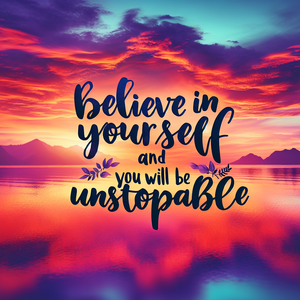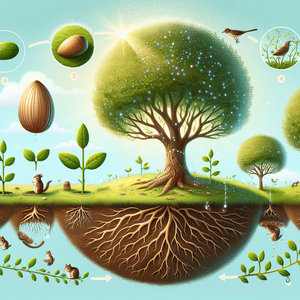Breaking Barriers: Inspiring Stories of Wheelchair Tennis Athletes

One of the most compelling aspects of wheelchair tennis is the unique challenges faced by its athletes. Take the story of former world champion Esther Vergeer, who, after a spinal cord injury at the age of 12, transformed her adversity into a pathway for greatness. Vergeer dominated the sport for over a decade, remaining undefeated for an astonishing 470 matches. Her journey is a testament to the power of resilience; she not only excelled in the sport but also became a role model for countless individuals facing similar challenges. Vergeer’s story illustrates how sports can serve as a powerful vehicle for personal recovery and societal change, encouraging others to see beyond their limitations.
The Motivation Behind Their Passion
What drives these athletes to push beyond their limits? For many, the motivation extends beyond personal achievement; it encompasses a desire to inspire others. Diede de Groot, the current world number one from the Netherlands, reflects on the importance of representation in sports, stating, "When people see someone like me competing at the highest level, it changes their perception of what is possible." This sentiment resonates with many athletes who serve as beacons of hope for individuals with disabilities, promoting inclusivity and breaking down societal barriers.
The Broader Impact on Society
The stories of these athletes extend far beyond the tennis courts. Their journeys have sparked conversations about disability, accessibility, and the importance of adaptive sports. The visibility of wheelchair tennis in major sporting events, such as the Paralympics, has played a crucial role in changing perceptions about disability. By showcasing the skill and determination of these athletes, society is gradually shifting towards a more inclusive mindset.
The inspiring stories of wheelchair tennis athletes remind us that the human spirit can triumph over adversity. These athletes not only break records but also break barriers, challenging societal perceptions of disability and inspiring others to pursue their passions, regardless of the obstacles they may face. As we approach the 2024 Paralympics, it is crucial to celebrate these heroes and recognize their contributions to sport and society. Their journeys illuminate the path towards a more inclusive world where everyone, regardless of ability, can experience the joy and empowerment that sports provide. The legacies of athletes like Esther Vergeer, Alfie Hewett, and Diede de Groot serve as powerful reminders that through determination and resilience, barriers can be broken, and dreams can be realized.
Adaptive Sports Program Coordinator
Nonprofit organizations, community recreation centers, and schools specializing in adaptive sports
Core Responsibilities
Develop and implement adaptive sports programs tailored for individuals with disabilities, including wheelchair tennis.
Collaborate with community organizations and schools to promote inclusivity and participation in adaptive sports.
Organize events and workshops to raise awareness about adaptive sports and engage the community.
Required Skills
Knowledge of adaptive sports and disability rights.
Strong organizational and communication skills.
Experience in program development and community outreach.
Sports Marketing Specialist for Disability Sports
Sports marketing firms, professional sports teams, and nonprofit organizations focused on disability sports
Core Responsibilities
Develop marketing strategies to promote adaptive sports events, such as wheelchair tennis tournaments.
Create compelling content for social media and promotional materials that highlight the achievements of athletes with disabilities.
Collaborate with sponsors and partners to enhance visibility and support for adaptive sports.
Required Skills
Strong understanding of digital marketing and social media platforms.
Experience in sports marketing or communications.
Passionate about disability advocacy and inclusivity in sports.
Rehabilitation Specialist for Athletes with Disabilities
Rehabilitation centers, sports clinics, and athletic programs focusing on adaptive sports
Core Responsibilities
Provide rehabilitation services to athletes recovering from injuries, focusing on adaptive techniques for sports like wheelchair tennis.
Work collaboratively with coaches and medical professionals to develop tailored recovery programs.
Monitor athletes’ progress and adjust rehabilitation plans as needed to ensure optimal performance.
Required Skills
Degree in physical therapy, occupational therapy, or sports science.
Specialized training in adaptive sports rehabilitation.
Strong interpersonal skills to effectively communicate with athletes and their families.
Sports Psychologist Specializing in Paralympic Athletes
Sports psychology clinics, Paralympic training centers, and athletic organizations focused on disability sports
Core Responsibilities
Provide psychological support and performance enhancement techniques to wheelchair tennis athletes.
Help athletes develop mental resilience, cope with challenges, and set personal goals.
Conduct workshops and seminars on mental health and performance strategies for athletes with disabilities.
Required Skills
Advanced degree in psychology with a focus on sports psychology.
Experience working with athletes with disabilities in high-pressure environments.
Strong communication and motivational skills.
Community Engagement Manager for Adaptive Sports
Local government recreation departments, nonprofit organizations, and sports associations focused on adaptive sports
Core Responsibilities
Lead initiatives to engage local communities in adaptive sports, promoting programs like wheelchair tennis.
Develop partnerships with local businesses and organizations to enhance community support for adaptive sports.
Evaluate and report on the impact of community programs and suggest improvements to increase participation.
Required Skills
Excellent networking and relationship-building skills.
Understanding of community program development and evaluation.
Passion for inclusivity and disability advocacy in sports.


